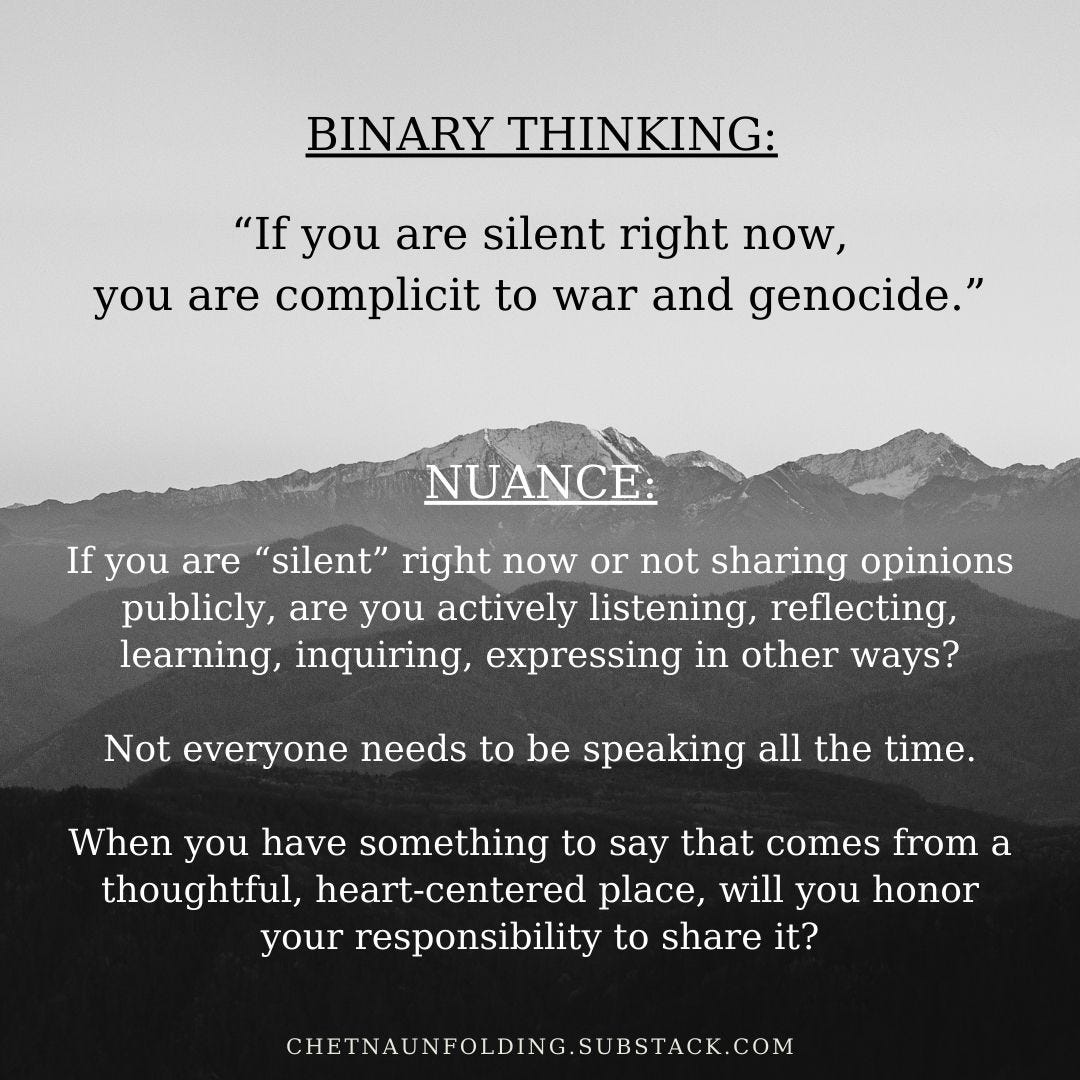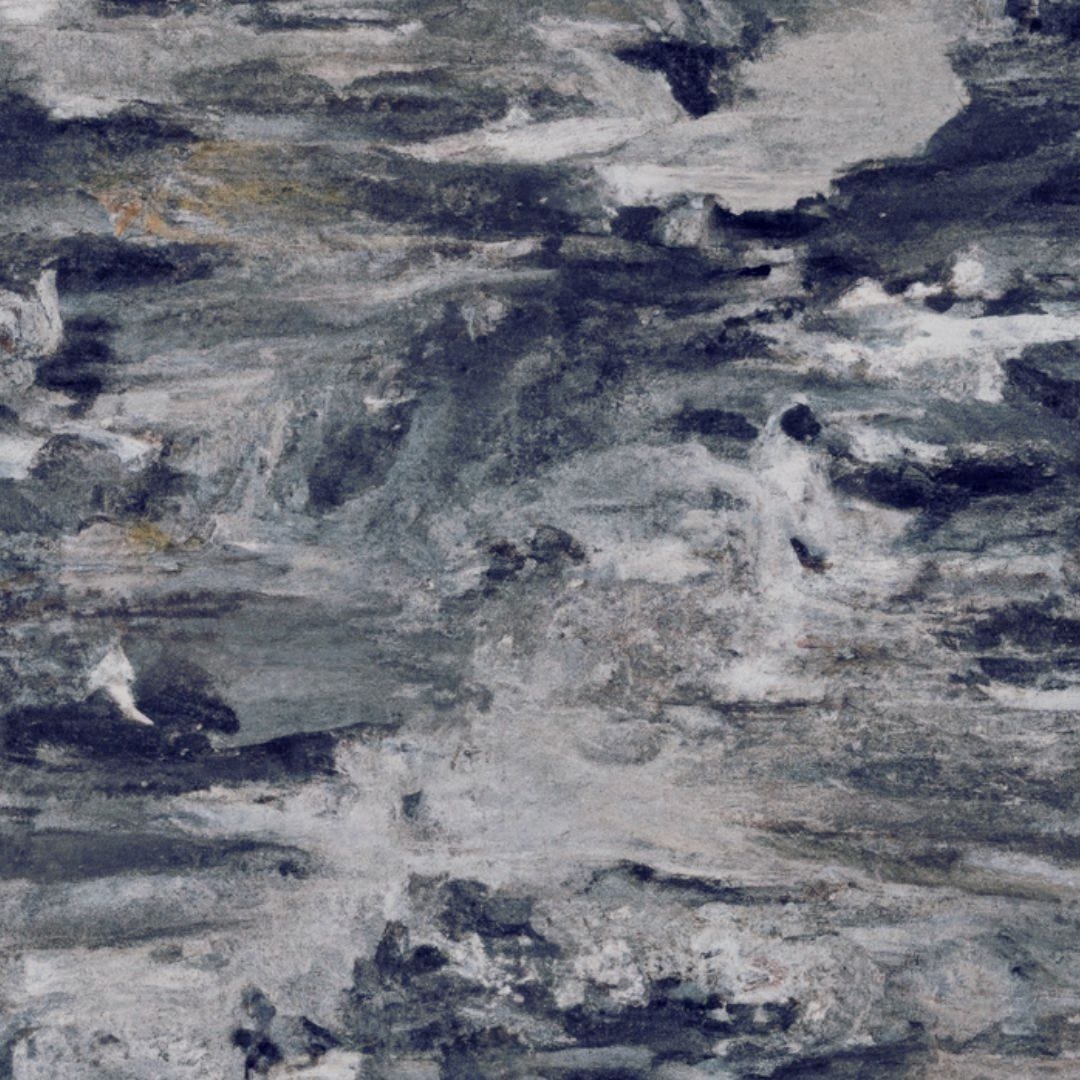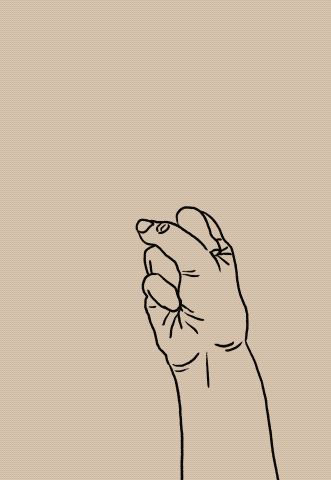The Addiction to Binary Thinking
especially in times of crisis
TLDR;
Binary thinking (also called either/or thinking, dichotomous thinking, black-or-white or all-or-nothing mindset) can be as addictive as sugar, pot, social media, or *insert drug of choice*
Not only is binary thinking an evolutionary tendency of our neurobiology, and reinforced by systemic oppression and trauma, it can also feel simple, righteous and safe.
Some of my practices to help hold nuance in times of crisis include:
slowing down
regulating my nervous system by any means necessary
getting clear with what I know to be true
Recognizing that even when I’m clear with what I know to be true, I could still be contradicting myself (quite possibly in this very article, and definitely in articles and art prior)
practicing “yes and…”
giving my questions to the great Mystery
Binary thinking can be as addictive as sugar, pot, social media, or *insert drug of choice*. Not only is it an evolutionary tendency of our neurobiology, and reinforced by systemic oppression and trauma, it can also feel simple, righteous and safe.
For me, smoking a joint might feel well-deserved after a hard day’s work, even supportive for my relaxation and creativity with an influx of ideas that fill my brain while I lay high and loose on the couch.
I mean…I don’t end up bringing to fruition any of those ideas with motivated discipline after the high wears off and my sober baseline level of anxiety just increases, but it’s a easy hit and an enjoyable evening for (seemingly) no more than an $8 puffer.
Binary thinking, also called either/or thinking, dichotomous thinking, black-or-white or all-or-nothing mindset, is much the same.
It’s the tendency to position or present situations, people or things as either right or wrong, either good or bad, either with us or against us, to either fight or flight.
With on-going genocides in Palestine, and Myanmar, Congo, Sudan, Syria, Yemen, Iraq, and China at the least, with the continual degradation of the climate, AI advancing in uncontrollable ways, the daily challenges of living in systems of capitalism, and generally being a feeling, sensing human on the planet right now…
Drawing deep lines in the sand between an “us” and a “them” feels righteous, deserved, and supportive of my safety, sense of control, and illusion of understanding, “knowing”, or being “right.”
Binary thinking is a symptom of being…a human animal.
It’s so automatic for us; we learned it millions of years ago. Natural selection gave us a shorthand way to assess threats and respond quickly for the sake of survival of our species. And now, even when we are exposed to billions more bits of stimulation and information every day and night, we can habitually and unconsciously resort to binary thinking to filter, comprehend and attempt to control it.
Confronted with a panoply of shades of gray, our brains have a tendency to “force quit”: to sort the things we see, hear, and experience into manageable but simplistic categories. We stereotype, pigeonhole, and, above all, draw lines where in reality there are none.Kevin Dutton
Black-and-White Thinking: The Burden of a Binary Brain in a Complex Work
It can feel far more helpless, confusing and painful to my logical brain to be with the complexity and continuation of war and abhorrent violence, of conflicting ideologies covering up deep-rooted and unhealed traumas that span generations, and of the gaping uncertainty of the future.
The chaotic sea of grays is…A LOT. It can feel more natural (compulsive) to just get someone to blame, to shame, to make wrong so that I can be right, or to make someone else right so that I can be wrong (and wallow in my guilt and victimization).
Living in the midst of global crises activates our sympathetic nervous systems to fight, flight, freeze and appease- whether we are being acutely threatened by bombs dropping, or internalizing the threat as if we are even as we’re lying in bed on a Monday morning. When we’re in this panic zone, it can feel like ain’t nobody got time to listen, to practice mindfulness, to hold compassion or curiosity with nuance. We’ve got to act quick and have answers. So it’s this or that, good or bad, safe or dangerous, accepted or canceled. Period.
If we grasp onto these statements, however seemingly true they seem (like “silence is violence” or “neutrality is complicity” or “I’ve got my own stuff to deal with, I don’t have capacity to engage beyond it”) with rigidity and moral superiority or inferiority, they become weapons to dismiss, shame, control and dominate ourselves and others into a “right” feeling or action, the very same way our colonial inner critics do within us.
In Tema Okun’s characteristics of white supremacy, she notes that either/or thinking shows up as:
Little or no sense of the possibilities of both/and.
Trying to simplify complex things.
Closely linked to perfectionism because binary thinking makes it difficult to learn from mistakes or accommodate conflict.
Conflict and an increased sense of urgency, as people feel they have to make decisions to do either this or that, with no time or encouragement to consider alternatives, particularly those which may require more time or resources.
A strategy used by those with a clear agenda or goal to push those who are still thinking or reflecting to make a choice between ‘a’ or ‘b’ without acknowledging a need for time and creativity to come up with more options.
A strategy used to pit oppressions against each other rather than to recognize the ways in which racism and classism intersect, the ways in which both intersect with heterosexism and ageism and other categories of oppression.
The thing is…none of us are immune to these characteristics when we’re all swimming in the colonial soup of white supremacy. We internalize these ways of being and often without consciousness, we enact them to gain our own sense of power and control…no matter what “side we’re on.”
Our binaries feel safe, despite how woke we think we are.
”We have all seen the dogpile of social media ― seen people verbally, relentlessly attacked for making problematic statements despite good intentions, or even for expressing legitimate differences of opinion. The movement seeks uniformity because uniformity and purity feel safe. This, too, is the language of trauma.Kai Cheng Thom
I Hope We Choose Love
As if systemic oppression and our animalistic threat response wasn’t enough to make binary thinking extra sticky, we have trauma too. Our trauma, particularly untended, makes the deep rooted urge to react with rigid binaries even more addictive because it seems safe or within our control.
My dear friend, Gert Comfrey shared with me the perspective from Gabor Maté, renowned addiction expert, that the source of addictions (to drugs, ways of thinking, etc.) is “not to be found in genes, but in childhood trauma and in stress and social dislocation endemic to systems of inequality and injustice." The personal, interpersonal and systemic trauma we each carry can exacerbate our binary thinking. And so, an addiction to binary thinking can be so automatic, so reinforced and unconscious.
When the language of our trauma leaves us with an overused strategy of either/or thinking as a way to find a sense of control amidst the uncontrollable, we grasp aggressively onto our protective binaries like it’s “life or death” (which binary thinking convincingly leads us to believe).
Social media can be an addictive cesspool of echoing dichotomies. Bite-size captions, commanding graphics, strategically pinned posts and headlining statements perpetuate reductive, shiny and sticky binaries. Even a brief browse on instagram and tiktok these days reveal some strong dichotomies like “silence is violence.” or “pick a side.” or “I don’t have time to deal with this, I have enough of my own stuff”. Martin Luther King Jr. himself said, “our lives begin to end the day we become silent about things that matter." Yes and…when these statements become weapons of offense and defense against ourselves and each other, how are they helping our sense of common, inclusive and diverse humanity?
Much like many compulsions or addictions, binary thinking could soothe, affirm or “protect” us temporarily, but they wreak havoc on us personally, interpersonally and socially. Mental health issues like depression and anxiety are reinforced by the limiting beliefs within rigid binaries (i.e. “I am/you are a failure,” “things will always be shitty,” “nothing I/she/he/they do is enough.”).
Dichotomous thinking can forge tribalistic trauma bonds with those “on our side”, though as another way to gain control by being “right” while making others “wrong,” it creates more polarization and disconnection, shame and hiding from our responsibility and our humanity.
So…what then?
Practices for holding nuance in times of crisis
When it’s a deep-rooted coping strategy for us as humans, binary thinking may well be…unavoidable.
Though perhaps we can compassionately catch ourselves and each other from the compulsion and addiction of all-or-nothing mindsets, even sometimes. Afterall, harm reduction approaches to addiction are inherently rooted in radical love and non-shaming principles.
I’ve quite possibly written from unconscious binaries in this very article, and definitely in previous ones. Please call me in, and let’s talk.
But here are some of my practices to be with nuance:
Slowing down.
Pausing before responding to a triggering comment or email
Sitting with someone’s difficult feedback, breathing into and noticing how my body responds
Getting off the gerbil wheel of despair, over-analysis, rumination or future-tripping
Regulating my nervous system, by any means necessary.
Much like the Dahlia blooming, I can stretch, even come to my edges before I panic, and contract and come into comfort- so that when I stretch again, it could be bigger and further. If I expect to stretch and stretch beyond my means, say by being continuously “active” or activated, outspoken without listening deeply in silence with myself and others, or not prioritizing time to rest and do seemingly “nothing,” burn out, shut down, a panicked self-harm or harm to others may be inevitable.
How can I expect to contribute to a world for peace, justice and liberation from my traumatized nervous system that’s different from a violent, unjust and oppressive world created by traumatized nervous systems?
Getting clear on what I know to be true.
I know some things to be true… like a ceasefire is necessary immediately, as well as sustained action and cross-border collaboration. Also that my recovery and commitment to my sobriety from pot is in highest service to my clarity and connection to myself and the world.
I know too that there are infinite possibilities beyond my logical brain, and that sometimes I know things through my body wisdom and intuition, which may not often be explainable nor rational.
Remembering that just because I know something to be true, I could still be contradicting myself.
This too can be…unavoidable.
For example and hear me out here because I think it’s all related…if we are actively resisting colonization (domination and control over a community and land by people in power) through our various movements for a free Palestine and a free Oakland and a free South Africa for instance, how are we resisting domination and control in even the smallest interactions in our daily lives? Like, are you killing spiders that make their way into “your” home before considering their lives? How are we resisting human supremacy- which is human colonization over other species on the planet? Like, are you consuming meat that’s produced in deeply inhumane and abhorrent systems that slaughter animals after having them live crowded in their own feces?
We have to pick and choose our movements, though this is intersectional. I name it here not to invalidate anyone’s choices and perspectives, but to remind us- certainly myself- of the inherent limitations of rigid or righteous thinking.
When I recognize that I may unknowingly be contradicting myself with any of my opinions, I feel a softening in me that creates space for more humanity, curiosity and collaboration with others, with the land and with Spirit.
This also leaves room for me to accept that just because I know something to be true, doesn’t mean it’s true or “right” for everyone. I can better practice what Sonya Renee Taylor in The Body Is Not An Apology called, “peace with difference” and “peace with not understanding.”
Practicing the juicy “YES AND…”
While talking about the evolution they’ve experienced in their organizing work, Gert reminded me of the approach of “yes and…” So much creativity, play and permission in improv unfolds from a “yes and…” What’s it like to practice this in our social change work?
“Silence is violence”, yes and…not everyone needs to be speaking all the time. If you are “silent” right now or not sharing opinions publicly, are you actively listening, reflecting, learning, inquiring, expressing in other ways? When you have something to say that comes from a thoughtful, heart-centered place, will you honor your responsibility to share it?
If you don’t pick a side, you are complicit, yes and…how are you engaging for our common humanity? What are the core values you are standing for and why? What pain or motivation lies at the root of both or all “sides”?
“I’m too overwhelmed with my own stuff”, yes and…how can you “step away to breathe and return to push.” (Valarie Kaur). How is your “own stuff” intertwined with “humanity’s stuff” and the “land’s stuff”?
What if “yes and…” will help us access the creativity, play and permission needed to build new worlds and systems rooted in liberation?
Offering my questions to the grand Mystery.
I can and must be taking action to learn, to research, to seek answers. Yes and, there are answers that are beyond sensibility.
So I give these questions to Spirit, to the Universe, to all that is sacred and far greater than any binary. Writing my biggest and smallest questions down, putting them on my altar, letting them alchemize there in whatever way is of highest service, with divine collaboration. Trusting that I don’t need to “figure it all out” on my own is a way that I transcend the rigidity of my logical brain.
Perhaps liberation exists “in the field beyond rightdoing and wrongdoing,” and perhaps it begins with how we think, act and exist in this moment in time.
Maybe. Maybe not. Maybe somewhere in between. How annoying is that.
Sigh.
Upcoming gatherings:
A couple more days to register for the Alchemizing Inner Critic series starting on Monday, 1/22 at 5pm PST
Join us to tend to the heart in times of genocide on Saturday, 1/27 from 12-3pm in Oakland at Artogether for some yoga and creative reflection in community. Donate to reserve your place and benefit the world of Adalah Justice Project, a Palestinian-led advocacy organization based in the U.S. that builds cross-movement coalitions for collective liberation
Applications are open to the enchanting 3-month program for Creative Somatic Alchemy until 2/16
This publication is free for you, though here are some other lovely ways to continue receiving and giving to the sustainability of this work:
Get a poster to adorn your space with compassionate, purposeful reminders
Get a book on abundance mentality and/or playful devotion
Join a gathering and be with me live
Share this on social media and with people you love
Become a paid subscriber
Thank you 💚








While preparing for our upcoming winter retreat this past weekend, I wanted the final takeaway to be a connection between our own internal work of healing and the healing of the world and I literally wrote down:
I want to contend that this is the beginning of the healing of our world, when we begin to integrate the conflicting pieces within ourselves. When we can love the worst parts of ourselves, we begin to heal from the pain and the trauma in our past and can “say I love you to those who persecute me because I see them in me too” (from Alok Vaid-Menon's poem "We are Free"). When we heal the binaries within ourselves, we begin to heal the divisions in our world.
Then I read your blog post and it resonated with this deep mystery I knew to be true within me. I'll probably use your content as the main text for one of our sessions :).
<3
Rachel